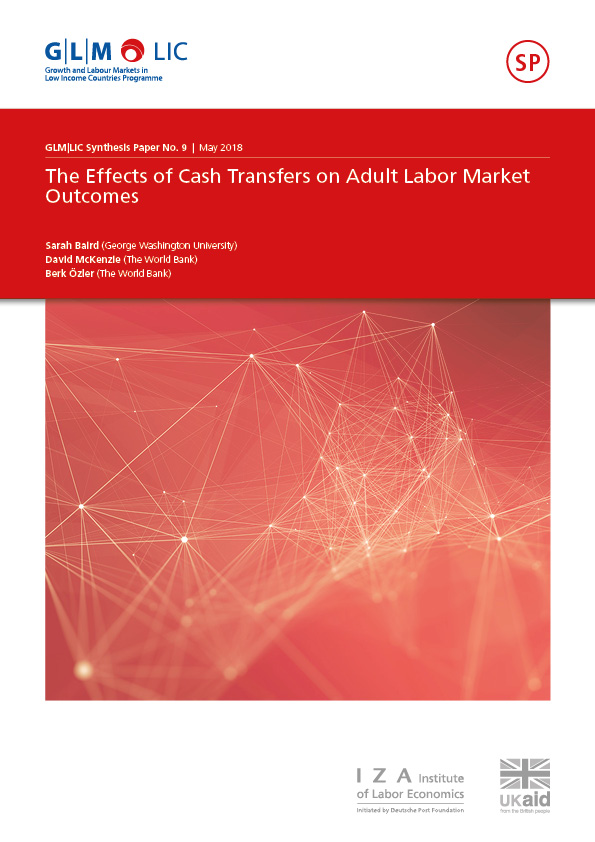The basic economic model of labor supply has a very clear prediction of what we should expect when an adult receives an unexpected cash windfall: they should work less, and earn less. This intuition underlies concerns that many types of cash transfers, ranging from government benefits to migrant remittances, will undermine work ethics and make recipients lazy. We discuss a range of additional channels to this simple labor-leisure trade-off that can make this intuition misleading in low- and middle-income countries, including missing markets, price effects from conditions attached to transfers, and dynamic and general equilibrium effects. We use this as a lens through which to examine the evidence on the adult labor market impacts of a wide range of cash transfer programs: government transfers, charitable giving and humanitarian transfers, remittances, cash assistance for job search, cash transfers for business start-up, and bundled interventions. Overall, cash transfers that are made without an explicit employment focus (such as conditional and unconditional cash transfers, and remittances) tend to result in little to no change in adult labor. The main exceptions are transfers to the elderly and to some refugees, who reduce work. In contrast, transfers made for job search assistance or business start-up tend to increase adult labor supply and earnings, with the likely main channels being the alleviation of liquidity and risk constraints.

The Effects of Cash Transfers on Adult Labor Market Outcomes
- Sarah Baird,David McKenzie,Berk Özler